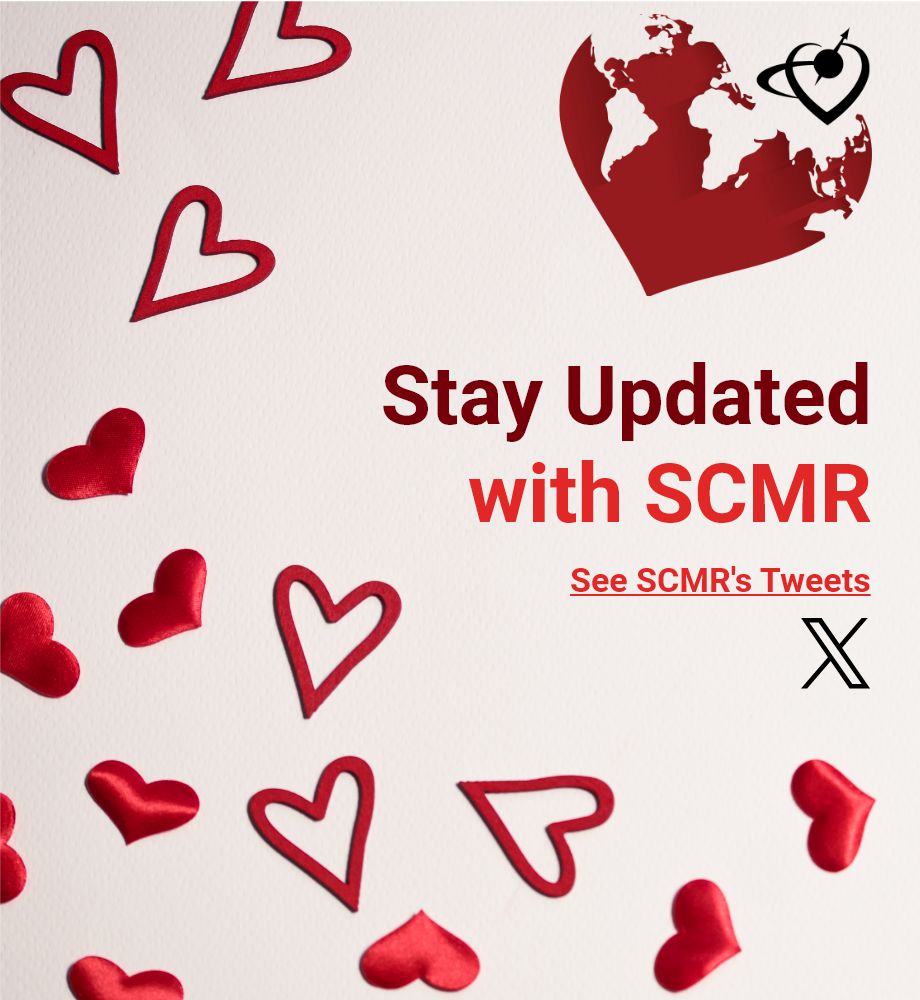With the goal to foster research that advances the technical and translational application of CMR, the SCMR annually awards a Seed Grant. Through the Seed Grant, the SCMR encourages young investigators to break new ground on novel topics and share their work with the SCMR community.
The SCMR encourages early career investigators to identify pilot projects for which Seed Grant funding will directly foster competitive research applications to larger scale governmental (e.g. US NIH, EU, British Heart Foundation) and/or other grant programs.
Eligibility:
- The Seed Grant Program is open to early career clinical and basic scientists (no more than 5 years after completion of the applicant’s terminal research degree (e.g. PhD) or medical residency/fellowship, whichever is later) at the time of the application deadline. Pre-doctoral students, post-doctoral trainees, and junior faculty are all eligible and encouraged to apply.
- The applicant must be a current member of the SCMR.
- SCMR seed grants are not intended to duplicate support for a funded research project. Preference will be given to projects deemed to support new directions which reflect growing independence of the early career investigator.
- Must include a project mentor who will provide guidance on executing the science.
- Research projects should not duplicate prior Seed Grant research. Previously funded SCMR Seed Grant projects are listed in the Seed Grant Recipient page.
- No prior grant funding with direct cost greater than $100,000.
Award Amount
- One seed grant, basic [technical] and/or clinical [translational] in focus, up to $40,000 will be awarded per year.
Submission Deadlines
- The SCMR submission site will close on May 15, 2026 at 1:00pm US Eastern Time. Please note the submission deadline will not be extended.
Submission Guidelines
Applicants are encouraged to clearly delineate how research proposals address key knowledge gaps and/or needs in patient-focused CMR. Examples of possible topics include (but are not limited to) proposals to develop and/or validate novel pulse sequences, or demonstrate incremental diagnostic and/or prognostic utility of innovative CMR approaches as applied to population-based clinical cohorts. Seed grant proposals may be either single center or multicenter in scope.
- A cover letter (1-page maximum) from the applicant describing their employment position and how the seed grant funds will be used to advance the field of CMR, a justification on how the award will make a difference in the delivery of the project, by covering costs otherwise not paid for, is required. The cover letter should indicate if the application falls exclusively in the “basic” (technical) or “clinical” (translational) science category, or entails both basic and clinical components.
- A letter from the applicant’s supervisor or department head (1-page maximum). This letter should include a mentoring and training plan and confirm that the applicant will have the time and resources (e.g. access to images, databases, scan time), needed to accomplish the proposed research project.
- If multiple institutions are involved, then a letter of support indicating the role of collaborators at other institutions.
- Biosketch (CV) of the applicant in NIH or equivalent format (4-page maximum).
- Research plan (3 pages maximum): Description of the pilot research project including specific aims, significance, current knowledge/preliminary data, innovation of proposed research, and approach/study design. The application should also include a timeline and expected outcomes for a one-year project. This plan should clearly state how this project addresses current knowledge gaps in CMR, and how SCMR seed funding will facilitate acquisition of pilot results for applications to established peer-reviewed funding programs.
- A detailed budget justification should be provided (1/2-page maximum). The funds from the award cannot be used for personal salary support or facilities & administrative costs. Eligible budget items include funds for pilot studies including generating data (e.g. scan time, equipment and/or supplies, software, associated trainee support) and/or accessing/analyzing existing databases. Funds for travel expenses to facilitate collaborations with other institutions / research groups are also eligible, up to 25% of the total award amount.
- Describe any potential conflicts of interest (1/2 page maximum)
- All application items should be consolidated into one PDF for submission.
- Please click here to submit your Seed Grant Application. You will need to set up a Reviewr account. If you have questions, please email hq@scmr.org. No applications will be accepted through email.
Peer Review Criteria
Grant applications will be reviewed by the Science Committee, which will recommend the award recipient to the Executive Committee for approval.
- Criterion 1 – Applicant (30%)
- Academic accomplishments (publications, awards, grants)
- History with SCMR involvement
- Criterion 2 – Research Plan (70%)
- Significance
- Innovation
- Scientific rigor & study design
- Environment (equipment, patient volume, mentorship)
Award Process
- The winner(s) will be announced at the Awards Ceremony during the SCMR Annual Scientific Sessions with a project start date of March 1st the same year, and will be highlighted in the SCMR Newsletter.
- The winners will be invited to present the results of their work within the next two following SCMR Annual Scientific Sessions.
- The winners will be offered one (1) complimentary registration to the Annual Scientific Sessions of the year in which they received the award, and one (1) complimentary hotel night stay.
Grant Funding Disbursement Process
Grant funding will be disbursed in two stages to ensure efficient financial management and project completion. Below is a detailed outline of the disbursement process:
- Initial Funding Allocation (80%) Upon approval of your grant application, 80% of the total funding will be provided upfront. This initial disbursement is intended to support the launch and execution of your project, allowing you to cover necessary expenses and operational costs.
- Final Funding Allocation (20%) The remaining 20% of the grant funding will be awarded upon successful completion of the final report and presentation within the next two following SCMR Annual Scientific Sessions. This final installment ensures that all required documentation and outcomes are presented in accordance with the grant guidelines.
Awardee’s Responsibilities
- A Progress Report must be submitted at the end of one year.
- The Progress Report must include a detailed summary of project costs, and a description of progress made towards the proposed research aims.
- The investigator will be invited to submit the results of the research project for presentation at the SCMR Annual Scientific Sessions.
- When ready for publication, the award recipients are encouraged to submit their work to JCMR, where it will be subject to the usual peer review process.
- The recipients of the award should acknowledge the SCMR Seed Grant Award in all abstracts and papers that result from the award.
- Successful investigators whose SCMR Seed Grant resulted in subsequent national or governmental funding will be invited to present their progress at the SCMR Annual Scientific Sessions.
- Recipients may be invited to serve for a 2-year term as a trainee representative in the SCMR Science Committee.







